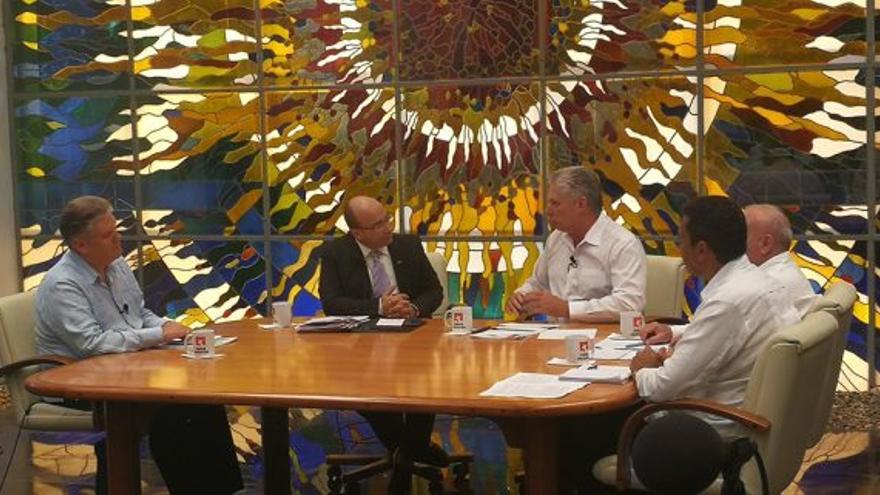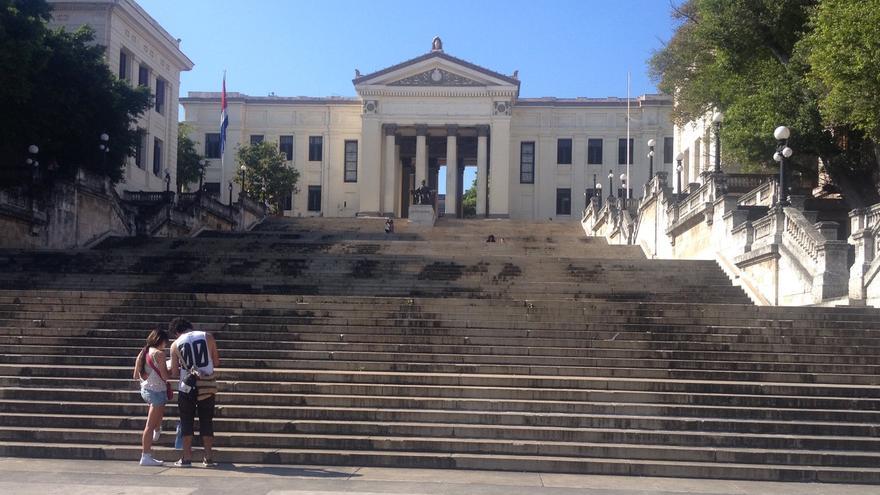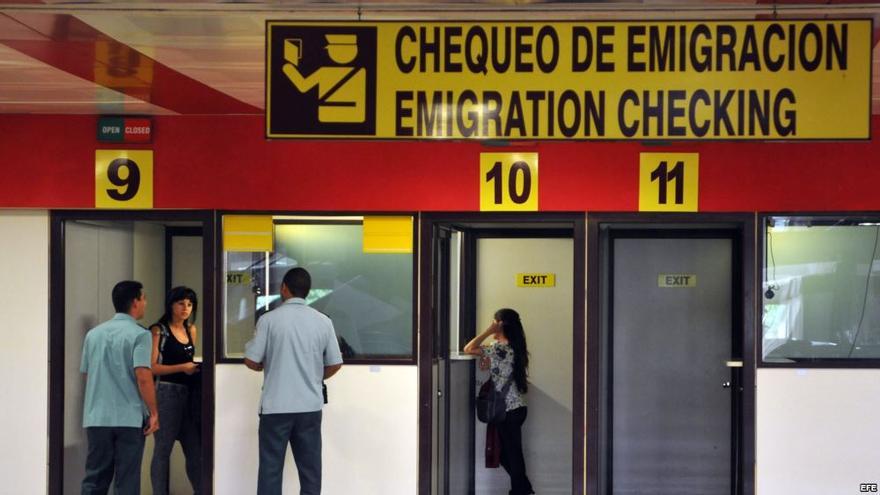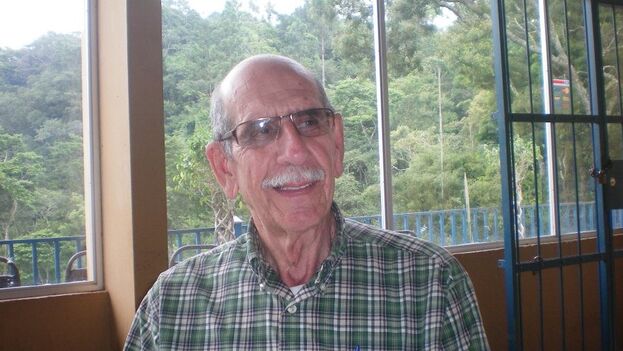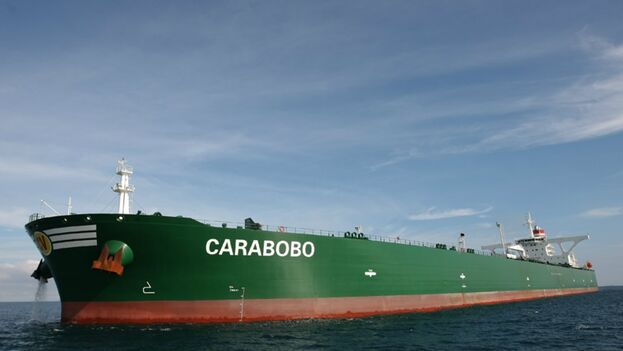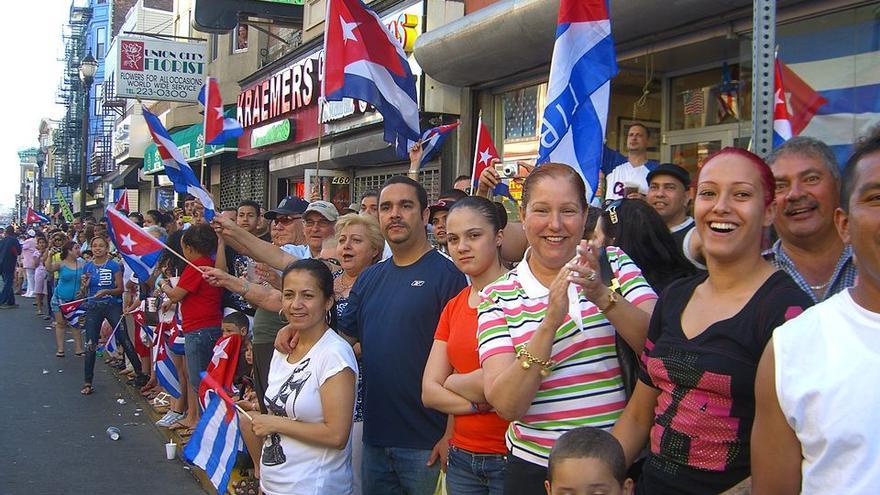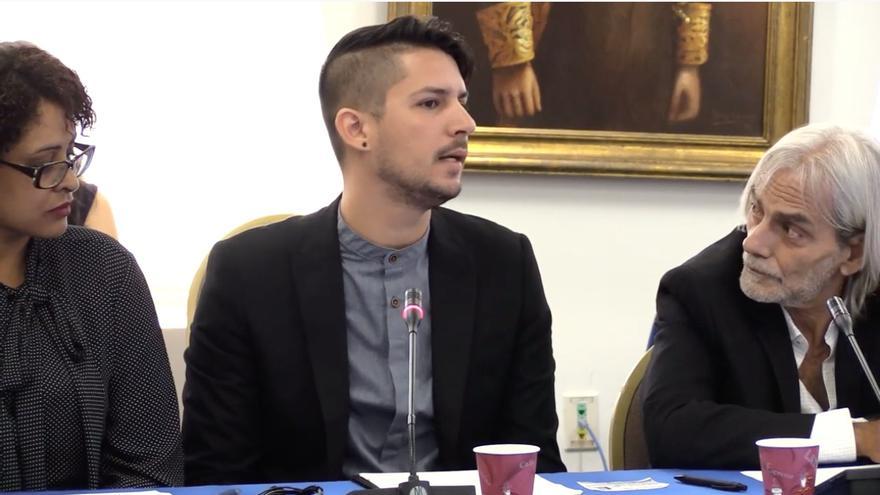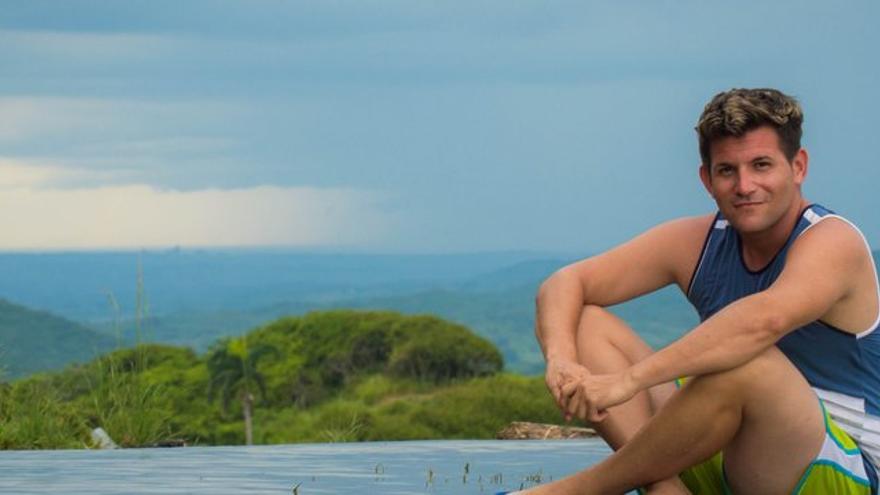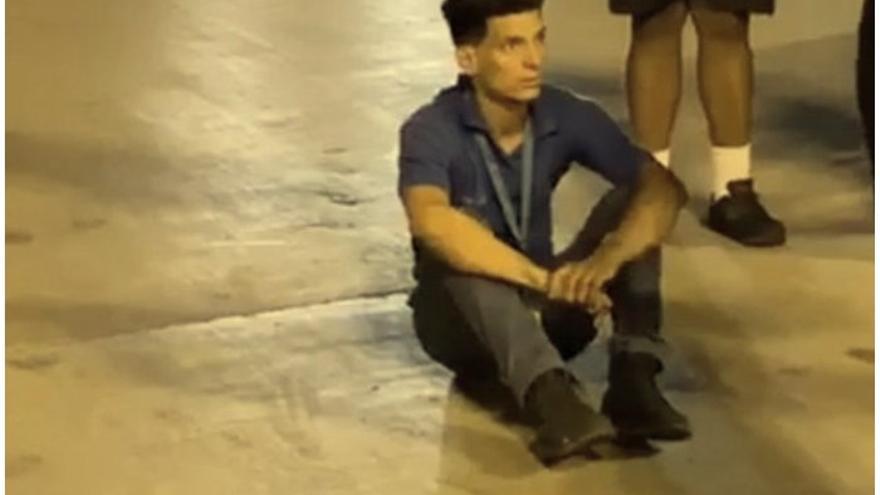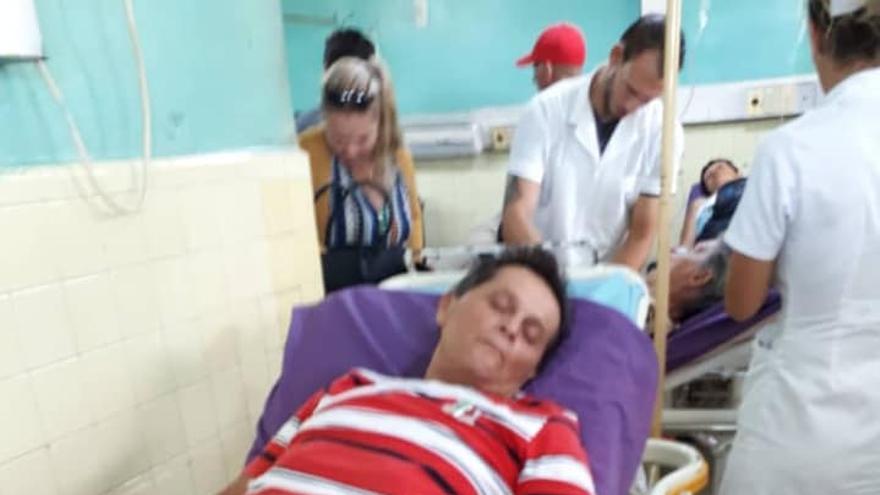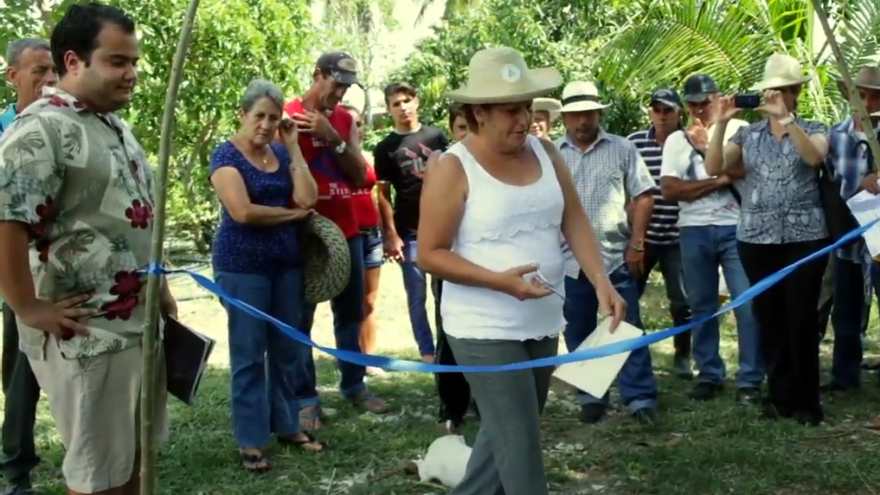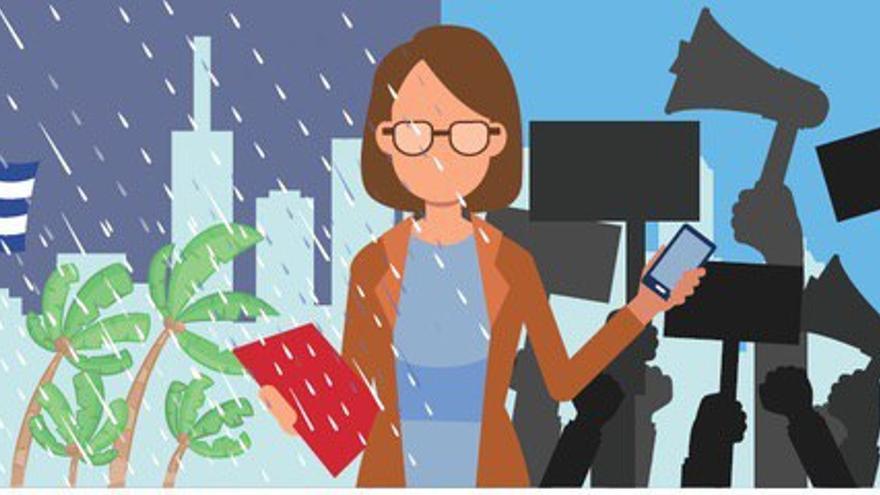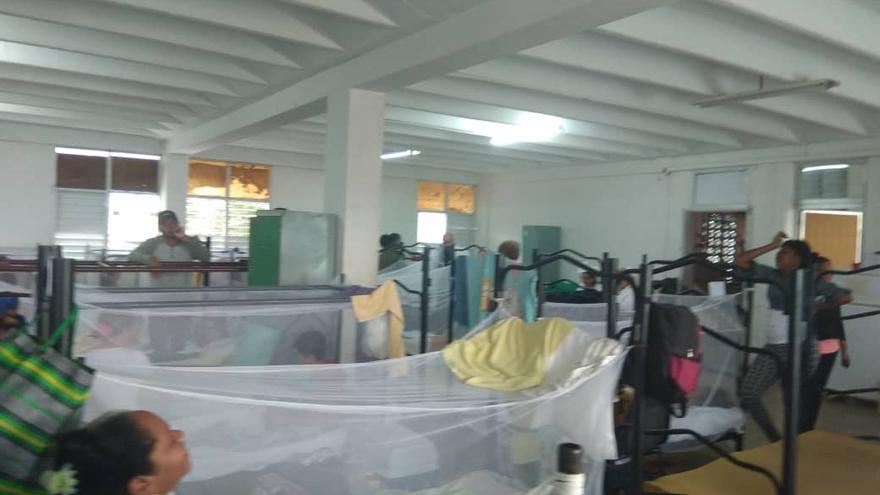
![]() 14ymedio, Luz Escobar, Havana, 27 September 2019 — ‘The spinning top’ happens once a day, crammed with sick people or those who believe they are. “It is a bus that travels among polyclinics looking for feverish cases, patients with dengue symptoms, and they take them all to a hospital. It can be the Fajardo or the 26th Clinic,” says a recently graduated doctor alarmed by the avalanche of people who arrive on the only route that resists being cut due to the crisis.
14ymedio, Luz Escobar, Havana, 27 September 2019 — ‘The spinning top’ happens once a day, crammed with sick people or those who believe they are. “It is a bus that travels among polyclinics looking for feverish cases, patients with dengue symptoms, and they take them all to a hospital. It can be the Fajardo or the 26th Clinic,” says a recently graduated doctor alarmed by the avalanche of people who arrive on the only route that resists being cut due to the crisis.
It is fifteen days after the government ministers called on the population for tranquility and announced, shortly before the arrival of the Venezuelan oil tanker intended to end the fuel deficit, that no sector would be seriously affected. But in that same speech the measures that, as it was foreseeable, have altered the lives of the Cubans more than the authorities wanted are evident.
“Sometimes the bus arrives at midnight and leaves more than 20 patients at one time in the hospitals. Some specialists were complaining because they received more than 30 cases for admission in the late hours and all at the same time. The other day in the Fajardo hospital the lights went out and I had to run the equipment for two hours two hours in treatment. I ended up exhausted,” says the young doctor. continue reading
The authorities proposed a reorganization of the energy supply to avoid blackouts, but in practice this means that a patient can be cut off halfway through a treatment.
“Because of a realignment of hours they made in my clinic now the compressor is turned off [responsible for operating the instruments] at six o’clock. If they cut you off at half, you have a problem,” a dental student in her senior year in the municipality of Cárdenas, in Matanzas, tells 14ymedio. “So you can not do anything right, you know when you start working with a patient but you can not guess when it will end, each case is different,” she complains.
Together with Healthcare, Education is another of the key sectors for the population, in addition to both being the regime’s flag. But here too, the functioning trembles more than usual. Although the Government assured that classes would not be suspended, and shortly after there were partial closures and reductions in the operating hours of the universities, the reality has been even more serious.
The University of Pinar del Río (UPR) has been practically paralyzed for the last two weeks, one of its workers told this newspaper.
“All these measures are avoiding the blackouts programmed by all possible means. The blackout is a symbol of that terrible time of the Special Period, and the last thing that this Government wants now is a protest.” The professor recalled a spontaneous demonstration in the Havana municipality of 10 October that occurred after the passage of a hurricane. At that time many Havanans spent several days without electricity or drinking water.
“This week was also the Caribbean National Competitive Programming Contest in all universities and in the UPR it could not take place. In the next rounds (national, regional and global) there is no way for there to be representation of the UPR,” the teache continues.
But not only university education suffers. This newspaper was able to verify, in a tour of several schools in the capital, that in several of them class schedules were adjusted andsome adjustments were made in class schedules and cuts of some complementary subjects such as Participatory Sport or Vocational Guidance. According to one teacher, activities should be normalized next week.
A resident of Guanabacoa, in the capital, has been going through the wringer to take her son to school in the last two weeks. Her son studies in a school for children with special needs and is always picked up by a minibus very close to their home. “As of last week they’ve cancelled the bus and now I have to invent a thousand tricks to get there early. The boy gets desperate and gets in a bad mood when he has to wait a lot,” she laments.
The savings have even reached the kitchens of the schools. In some provinces such as Pinar del Río and Matanzas, schools are using firewood to cook students’ lunch, according to several testimonies collected by this newspaper. “They cook in the middle of the schoolyard and every day my granddaughter gets home with ashes her hair,” says a retired woman from Pinar del Río who has three grandchildren in her care.
Alberto López Díaz, vice president of the Government in Villa Clara, said there are concrete measures that have been agreed to with the country’s leadership for saving electricity.
“The state centers disconnect the breakers during peak hours, from 11:00 am to 1:00 pm and from 5:00 pm to 9:00 pm. Only 164 centers with vital services and priorities are authorized to maintain electricity consumption, such as the Hospitals, the meat productions plants, dairy products, electrochemistry, among others,” said López in a meeting that took place this Thursday in that city and was chaired by Cuban president Miguel Díaz-Canel Bermúdez.
In that province 917 patrols have been created from 434 schools to go house to house alerting the 12,505 customers of the Electric Union that consume more than 500Kwh of the need for savings. In addition, 121 command posts have been created to achieve, at the level of the Committees for the Defense of the Revolution (CDR) a call to turn off 20-watt lamps and 120-watt refrigerators.
Although the Government has spent days pretending that the situation is short-term and the measures adopted will cushion major problems, the lives of citizens show that things have gone remarkably worse. The lack of foreign subsidies and the inability of a stagnant economy without dynamism are far from being solved with the arrival of an oil tanker.
____________________
The 14ymedio team is committed to serious journalism that reflects the reality of deep Cuba. Thank you for joining us on this long road. We invite you to continue supporting us, but this time by becoming a member of 14ymedio. Together we can continue to transform journalism in Cuba.

